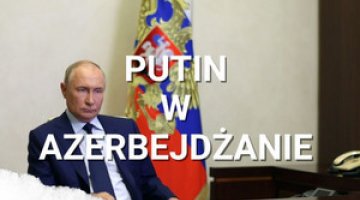Analyses
More scapegoats of the Russian anti-corruption campaign
On 20 February Vladimir Pyekhtin, the head of the parliamentary ethics committee and a prominent member of United Russia, together with three other State Duma deputies, resigned their mandates as members of parliament. This came a week after President Putin introduced a draft law to the Duma prohibiting government officials from having foreign bank accounts, and ordering that they declare their ownership of foreign property, as well as the source of the funds required to buy them.According to some parts of the media, the deputies mentioned above were forced to resign by the Kremlin.
Commentary
- The planned departure of the deputies is yet another chapter in the ‘anti-corruption campaign’ in Russia, which has been ongoing for several months, and has mainly affected representatives of the Russian elite. The main objective of this campaign, which has been initiated and coordinated by the Kremlin, is to discipline the Russian elite, which since Putin’s return to the presidency has gradually been growing restive. This campaign is also an attempt to ‘manage’ corruption, which in recent years has begun to reach previously unprecedented levels, and is hindering the realisation of even the most prestigious Kremlin initiatives (such as the APEC summit in 2012, the preparations for the Olympics in Sochi, as well as a number of innovative projects including the creation of Russia’s own Glonass satellite navigation system). At the same time, Putin’s anti-corruption rhetoric is designed to prevent a further decline in his public support.
- Putin’s actions may have been partly influenced by the activity of government opponents, including independent bloggers who have recently been disclosing information about the property owned by state representatives, including foreign real estate which has not been declared in official statements (in recent weeks these publications also mentioned Vladimir Pyekhtin). In response to its opponents’ activity, the government has taken further action to strengthen control over the internet (parliament is preparing a bill requiring operators to disclose user data), and to make it difficult for citizens to use information which could compromise state representatives (the Duma is preparing to pass the second reading of amendments to the Civil Code which are intended to strengthen the protection of personal property; this may be aimed at preventing independent bloggers from revealing the private interests of officials and their relatives).
- The anti-corruption campaign, even though it may bring temporary benefits to President Putin’s image, is testimony to the deepening systemic crisis. Since his return to the Kremlin, Putin has clearly changed the mechanisms of the relationship with his supporters from a positive basis (distributing wealth and jobs, ensuring immunity) to a negative one (of increased control and discipline). At this time, the president is reaching for the ‘bogey’ of the anti-corruption drive, which can be used against almost any Russian official. This reflects a decline in Putin’s confidence in his environment, which no longer provides unconditional support for all his initiatives and may not demonstrate full loyalty in a potential crisis situation. On the other hand, among the elites themselves, a policy of ‘forced loyalty’ heightens fear and discontent, forcing them to see their leader not so much as a guarantor and distributor of favours, but rather as a growing threat.




